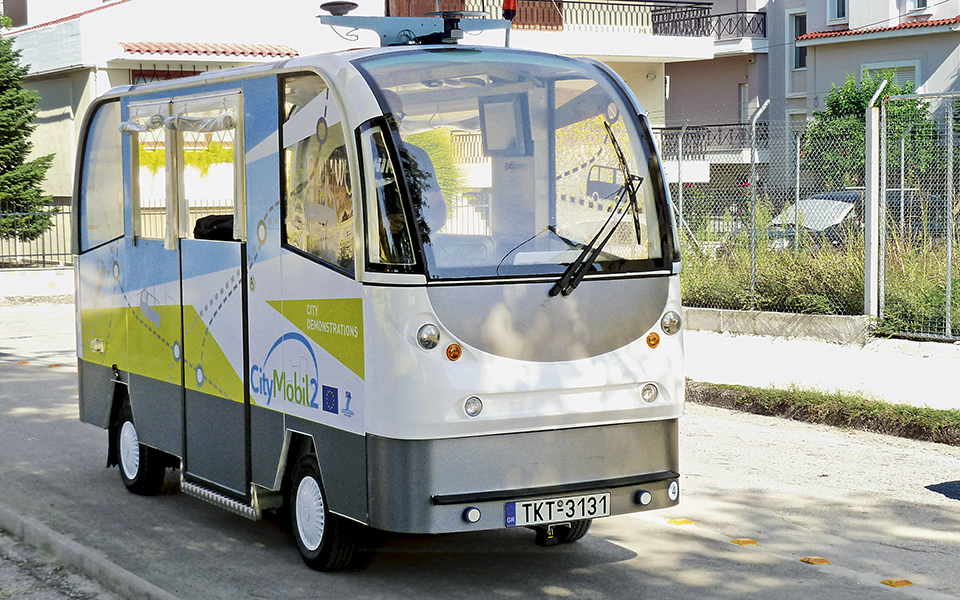The driverless bus pilot scheme in Trikala has arguably been a resounding success overshadowing a similar project by Google, prompting the people behind to hail it as a global success.
“This is a world first. We managed to create an automated transport system, “said Angelo Amditis, research director of the Institute of Communication and Computer Systems (ICCS) of the driverless buses circulating in Trikala.
During a press conference about the completion of the program, CityMobil2, Amditis contrasted its success with a similar Google scheme.
In contrast to the American project, he said, on the buses in Trikala there no driver when it is in motion.
The driverless buses were the final touch to the city’s “Smart City” pilot scheme and attracted the attention of scientists and institutions from around the world, because, although the scheme is part of a European program, the Trikala project represents innovation on an international level.
The vehicle circulates within the city’s urban fabric as opposed to other regions (Milan, Italy, Leon, Spain, La Rochelle, France and Vantaa, Finland) which took part in the CityMobil2 program and launched similar vehicles which operated in more secluded and protected environments. In Italy, these buses drive along a promenade, while in La Rochelle, France they circulate in a large waterfront area.
The huge success of the project has been confirmed by the proposal submitted to the EU for further funding. The aim is to launch, within the framework of the same experiment, private vehicles without drivers to circulate through the city.
The bus, that began to circulate on the streets of Trikala in late September to March, covered a total of 1,490 routes across 3,580k and carried 12,138 passengers.
Speaking at the press conference, Τhe mayor of Trikala, Dimitris Papastergiou, noted that, despite their initial reluctance, city residents have embraced the new mode of transport.
The vehicles were donated by two partner manufacturers participating in the program (Robosoft and Induct) for six months alternately in each qualifying city between March 2014 and June 2016.
The four buses (plus two spares) ran six days a week (Tuesday to Sunday), twelve hours a day, and were programmed to follow scheduled and alternative routes via red and blue lines.
Under this global program, even the reaction of the public was studied, and researchers from the University of Leeds were present to record the interaction of pedestrians and vehicles with the driverless buses.











